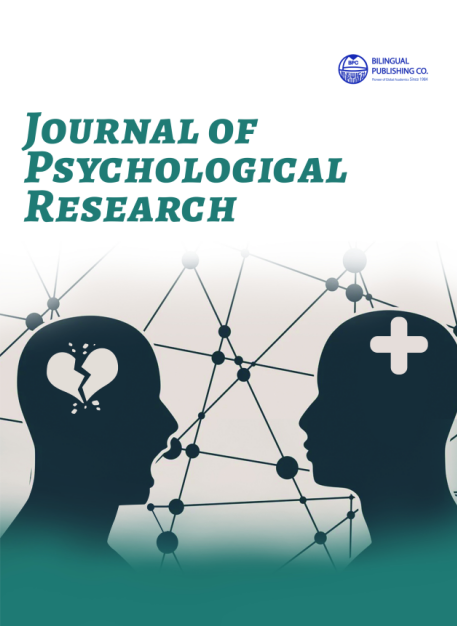Manuel Ojea Rúa es Catedrático de Orientación Educativa (3492563057A0511). Doctor en Psicología- Pedagogía por la Universidad de Vigo. Ldo. en Psicología por la Universidad de Santiago de Compostelsa, Colegiado con el nº GX05862. Ldo. en Psicopedagogía por la Universidad de Vigo. Especialista en Neuropsicología del Desarrollo. Es autor de 54 libros, 214 Artículos en Revistas Científícas y numerosos Articulos en Prensa. https://orcid.org/my-orcid?orcid=0000-0002-9787-2520. MAIL: moxea@uvigo.es
Wednesday, 11 March 2020
25 ANIVERSARIO AUTISMO GALICIA
#25ANIVERSARIOAUTISMOGALICIACAMPAÑA «A VIDA DESDE UN CRISTAL DIFERENTE: VIVINDO O ESPECTRO»
CLAVE 1 // #ESPECIALIZACIÓN E #ESPECIFICIDADE.
MANUEL OJEA RÚA, presidente da Asociación TRASCOS, fálanos da ESPECIFICIDADE e os MODELOS DE #MEDIACIÓN #COGNITIVA

Vídeo: https://youtu.be/gqxMUB8oKP8
Tuesday, 18 February 2020
ÁLEX
Álex, un alumno de 14 años, que forma parte de la Asociación TRASCOS, responde a los periodistas en el Dia Internacional del Síndrome de Asperger: 18-2-2010.
https://www.lavozdegalicia.es/ourense/
Wednesday, 12 February 2020
DIAGNÓSTICO Y TEA
Todavía falta mucho para alcanzar el 100% de los diagnósticos de TEA.LA REGIÓN, 12-2-2020
Acceder al documento:
Monday, 10 February 2020
Sunday, 2 February 2020
Tuesday, 21 January 2020
Wednesday, 15 January 2020
Friday, 22 November 2019
PONENCIA PRESENTADA EN EL II FORO INTERNACIONAL DE PSICOPEDAGOGÍA
Ponencia titulada: “Trastorno do espectro autista e inclusión psico-socio educativa” (Ojea, 2019). Presentada en el II FORUM INTERNACIONAL DE PSICOPEDAGOGIA “A Caminho da Educação Inclusiva”. Instituto Superior de Ciências da Informação e da Administração (ISCIA). Aveiro (Portugal), 22/11/2019.
http://www.iscia.edu.pt/artigo/ii-f%C3%B3rum-internacional-de-psicopedagogia
Thursday, 21 November 2019
Wednesday, 6 November 2019
Wednesday, 23 October 2019
Wednesday, 2 October 2019
Thursday, 26 September 2019
Sunday, 8 September 2019
Friday, 2 August 2019
Desarrollo cognitivo relacional en personas con trastornos delespectro autista
Ojea,M. (2018). Desarrollo cognitivo relacional en personas con trastornos delespectro autista. En A. Carneiro- Barrera y A. Díaz- Román, Avances en Ciencias de la Educación y del Desarrollo (pp. 955-964). Granada:Universidad de Granada, Asociación Española de Psicología Conductual, Grupo de Investigación CTS- 261.
ISBN:978-84-09-13321-5
Friday, 26 July 2019
Thursday, 27 June 2019
The Analysis of Effects of Semantic Comprehension upon the Anxiety Indices in People with Autism Spectrum Disorder
Journal of Psychological Research | Volume 01 | Issue 02 | p. 8- 18
July 2019
https://ojs.bilpublishing.com/index.php/jpr/article/view/595/620

Sunday, 16 June 2019
INSTITUTO DE INVESTIGACIONES CIENTÍFICAS
En el marco de la Asociación TRASCOS, se ha creado el Instituto de Investigaciones Científicas (integrantes), que comienza su andadura con la implementación del proyecto de investitgación: "Análisis de las etiología de componente genético en personas con Trastornos del Espectro Autista".
Wednesday, 17 April 2019
Saturday, 13 April 2019
Wednesday, 10 April 2019
Monday, 8 April 2019
Wednesday, 3 April 2019
Tuesday, 2 April 2019
Monday, 1 April 2019
Meaningful Learning Effectiveness Related to Nets Codes in Students with Autism Spectrum Disorder
Open Access Journal of Addiction and Psychology (ISSN: 2641-6271)
Meaningful Learning Effectiveness Related to Nets Codes in Students with Autism Spectrum Disorder. DOI: 10.33552/OAJAP.2018.01.000501
Monday, 11 March 2019
Friday, 22 February 2019
Monday, 18 February 2019
Sunday, 17 February 2019
Friday, 15 February 2019
Saturday, 9 February 2019
Wednesday, 6 February 2019
Thursday, 27 December 2018
Factores descriptivos de la alteración emocional en personas con TEA: una perspectiva familiar
Descriptive Factors of Emotional Disturbance in People with Autism Spectrum Disorders: A Family Perspective.
SOJ Psychology, 5(2), 2018
Thursday, 6 December 2018
Wednesday, 5 December 2018
Thursday, 29 November 2018
Predictability of Psychopedagogical

Comprehensive Psychology, Volume 5: 1–10
DOI: 10.1177/2165222816634036
Predictability of Psychopedagogical Variables Related to User SatisfactionLevel When Including Students WithAsperger Syndrome at University
Manuel Ojea & Nuria Diéguez (2016)
Sunday, 14 October 2018
PREDICTIVE ANALYSIS OF ANXIETY INDICES IN PEOPLE WITH ASD
Manuel Ojea Rúa
Adrián Tizón Ramírez
Abstract
Individuals with autism spectrum disorders (ASD) have high anxiety indices due to complexity to understand the social interactions in which they participate, which may be due to the intrinsic characteristics that form diagnosis, investigated by the perceptual-cognitive hypotheses of the cognitive central theory (Happe, 1997; Happe and Frith, 2006). Likewise, it's particular form of processing involves deficits in the development at neural interrelation of the cognitive system throughout the information processing operation during the interactions carried out –both lived and perceived– leads to immediate consequences in perceptual- cognitive process (Simmons and Barsalou, 2003). Then, according to these hypotheses, both clinical characteristics of personality and the confrontation of unforeseen contexts may involve significant predictive factors that high increase of anxiety levels in people with ASD. This research therefore aims to describe the possible explanatory predictive models for highlighted anxiety in students with ASD. A total of 111 students with ASD were involved in this study through the answers given by professionals directly related in their specific educational process to an ad hoc questionnaire, which is composed of 23 items relate to different possible explanatory variables of anxiety processes in students with ASD (see Appendix 1). Results found through statistical analysis of regression equation conclude that anxiety indices are related with following predictor variables: 1) “inattention" variable (attention deficit and hyperactivity), 2) "unpredictable" variable (context not foreseen), 3) “diagnosis” variable (disorder diagnosis), and 4) “internal” variable (personality characteristics, internal conflicts lived or perceived), which are included in predictive models to explain possible causes of increased anxiety in people with ASD. Furthermore, comparative analysis carried out through Tukey HSD test for the "diagnosis" and "age" variables, and the t independent samples test for the variable "sex", didn´t show any differences in the anxiety levels with regard to the variables, so anxiety isn´t influenced for these static variables in people with ASD. Thursday, 11 October 2018
Thursday, 4 October 2018
Wednesday, 12 September 2018
Miembro del Consejo Editorial de la Revista: Journal of Intellectual & Developmental Disabilities
Miembro del Consejo Editorial de
Global Journal of Intellectual & Developmental Disabilities
ISSN: 2575-8586
Tuesday, 28 August 2018
Monday, 13 August 2018
Subscribe to:
Comments (Atom)














































